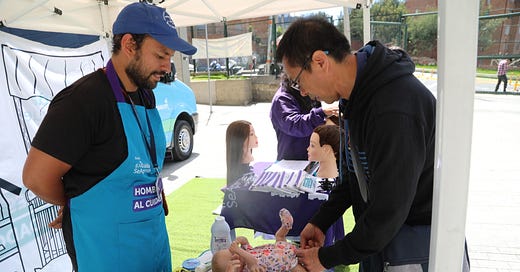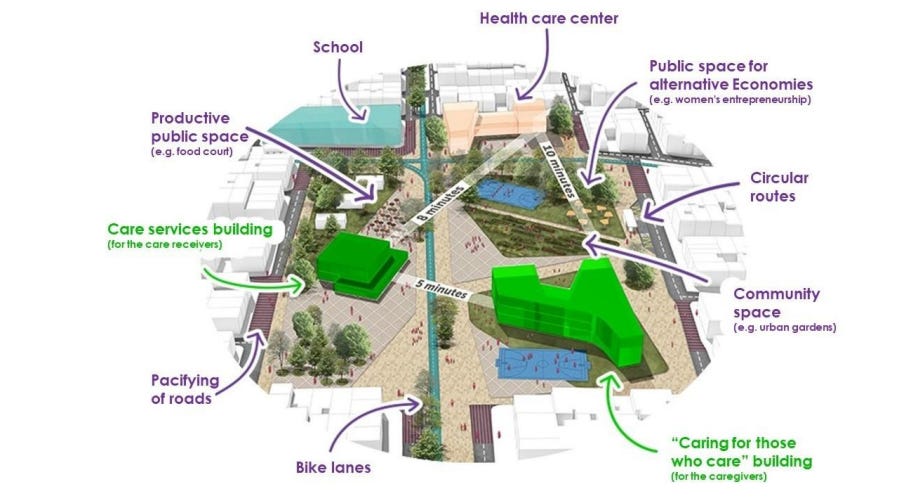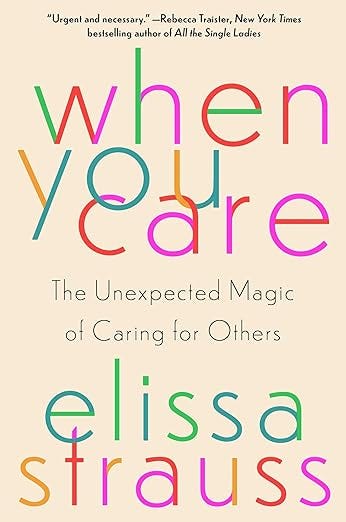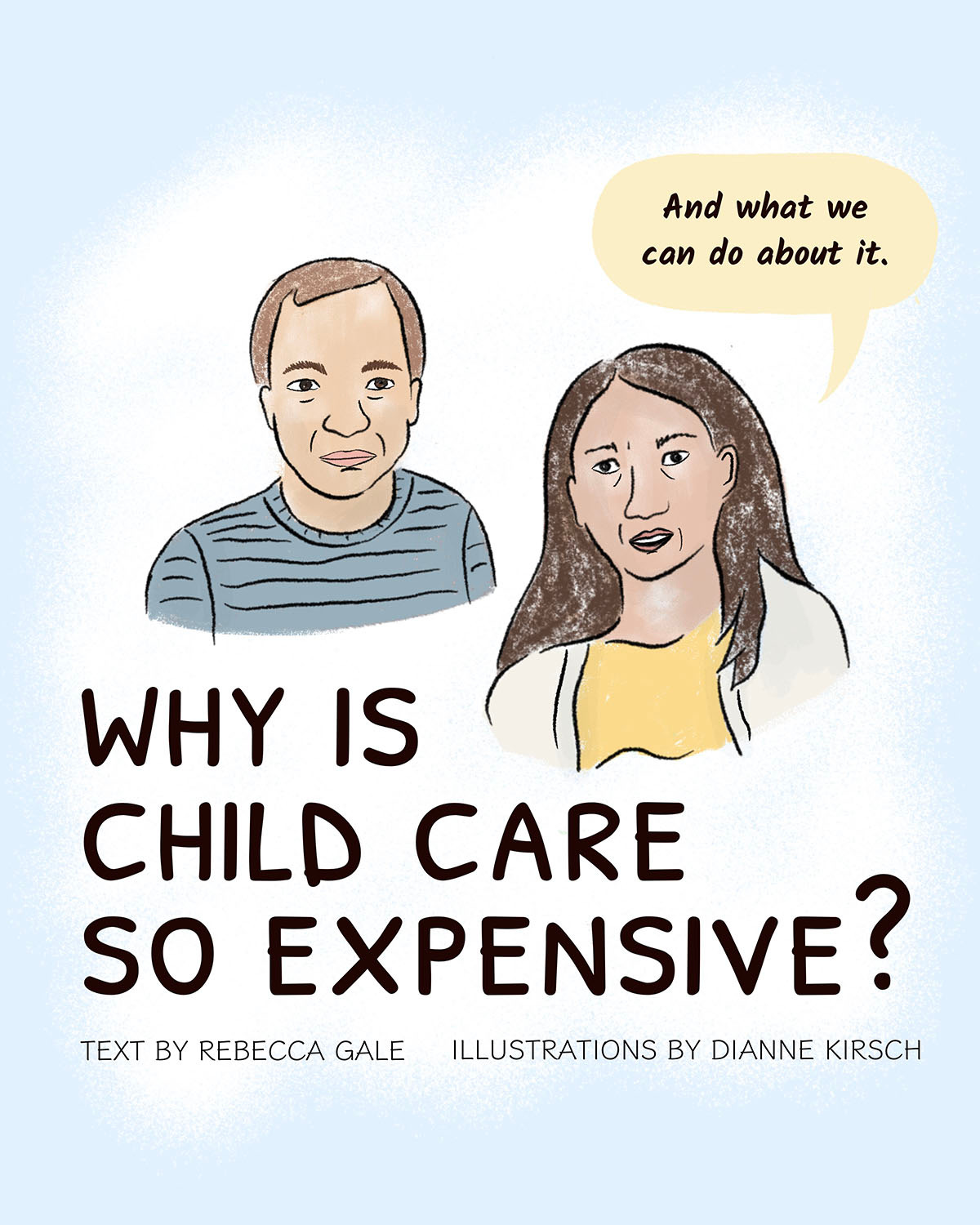For too long, the narrative around caregiving and household responsibilities has been predominantly female-centric. My long-standing interest in the role men play both at home and in the workplace took a fascinating turn last month when I visited Providus Bank in Lagos, Nigeria. There, I delivered Parental Leave Care Packages and was heartened to see numerous men expressing genuine interest in how they could better support parental leave for their partners and newborns. This encounter highlights a critical gap in our societal structure: men are often encouraged to participate in caregiving, yet there is no clear blueprint for them to follow.
In many African cultures, traditional roles are sharply defined from an early age. Boys are typically involved in tasks like clearing bushes or cleaning cars, supporting their fathers in occasional, non-routine chores, while girls are engaged daily with cooking, cleaning, and other household duties. This division not only enforces a gendered split in household labor but also sets a precedent for adult life, where women are expected to instantly assume all caregiving responsibilities upon starting their own families.
However, the reality is changing. As women increasingly contribute to the family income, the static role of men as mere providers is no longer viable. Yet, without proper guidance and support, men may struggle to step effectively into more nurturing roles. This is where innovative programs like the Care School for Men in Bogotá, Colombia, come into play.
Bogotá's Care School for Men aims to disrupt centuries-old cultural norms by engaging men in caregiving roles traditionally held by women. Funded by the city government, this program educates men on various aspects of domestic care—from cooking and cleaning to the more nuanced areas of emotional support and childcare. These efforts are complemented by community centers known as "careblocks," which provide essential services like laundry and daycare, further alleviating the domestic burden on women and facilitating a more equitable sharing of household responsibilities.
The program's approach is multifaceted, involving not just practical training but also emotional and psychological education to help men understand and undertake their share of domestic work sincerely and effectively. By showing that caregiving is not just a duty but a shared responsibility that enriches personal connections, Bogotá's initiative offers valuable lessons in how societies worldwide can better support gender equity in caregiving.
Care Blocks offer a context specific solution that uses a radical, ease-of-access modality at a level that has never been tested before. It introduces a new criterion for the city’s urban planning that locates caregivers and care work at the centre and organises the city to meet people’s needs, instead of the other way around.
As we continue to push for a redefinition of gender roles, it's crucial to highlight and support such transformative programs. They not only provide a blueprint for men to engage in caregiving but also demonstrate the profound societal benefits of balanced domestic responsibilities. Through these initiatives, we can hope to cultivate a world where the act of caring is universally embraced as a fundamental human attribute, not just a gendered obligation.
What I am Reading:
When You Care by Elissa Strauss weaves historical anecdotes and science with conversations with parents and caregivers to the young, old, disabled, ill, and more, revealing a rich array of insights about how care shapes us on the inside and the outside, for the better. Care is a long-ignored force in our collective and political lives, as well as a deeply philosophical, spiritual, and psychologically potent experience. Moreso, an embrace of care by both women and men will lead to a more gender equitable future and help us reimagine what it means to be productive and live a meaningful life. The result is an eye-opening exploration into the power of being depended on—and a stirring call to action to finally acknowledge the breadth, depth, and beauty of all that caregivers do.
Global Care Memo:
Childcare Is So Expensive, But Why? by Rebecca Gale.
Deliveroo is spending an estimated $230,000 to give a handful of riders 15 hours of childcare—after years of lobbying to avoid paying sick leave, PTO, and pensions.
After federal funding for the childcare industry expired last year, more families now lack access. But business leaders can help.
Millions of American Kids Are Caregivers Now: ‘The Hardest Part Is That I’m Only 17’
How caregiving impacts a generation of Canadians: ‘Unpaid work does not end’
The Care Gap is written by Blessing Adesiyan, Founder & CEO of Caring Bloc where she is on a mission to close the care gap for women, workplaces, and economies through advocacy, content, and technology. Follow @blessing.adesiyan @thecaregap for more.








